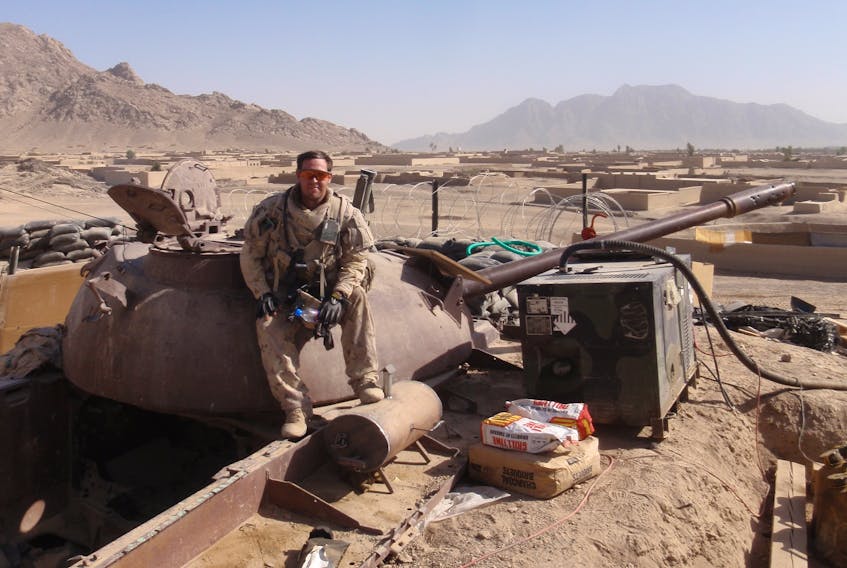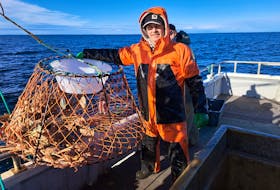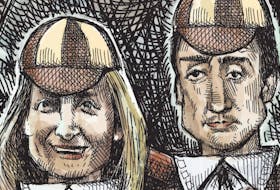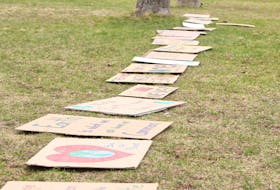Justin Eddison got tired of the questions.
When he returned from Afghanistan in December 2010, the Corner Brook native encountered an endless stream of people who wanted to know what it was like.

Was it hot?
Did you kill anyone?
Now, the last one comment didn’t sit well with Eddison. He had an answer for the first one, but no one wants to relive the times they’ve had to pull a trigger and taken a human life.
“It’s just an inappropriate question to ask,” said the second lieutenant in the Royal Canadian Air Force who’s currently stationed at Canadian Forces Base Moose Jaw in Saskatchewan.
Eddison has been with the Air Force since 2015 and is training to become a CT-156 Harvard II instructor. He hopes to begin teaching in January.
A member of the Second Battalion of the Royal Newfoundland Regiment, Eddison was deployed in 2010, seeing it as a way to step outside his normal training regime and put what he had learned as a member of the reserves to practical use.
It was also a way to support a good friend of his — Cpl. Brian Pinksen — who had decided to enrol to serve his country.
“We volunteered to support each other,” said Eddison.
The pair didn’t serve in the same battalion, but they were in Afghanistan at the same time.
In August, just months into his deployment, Eddison was en route back to the country from two weeks’ leave when he received word that Pinksen had been injured in an improvised explosive device attack in the Panjwaii District of Afghanistan.
Eddison accompanied Pinksen on his journey home. He travelled with his friend’s remains from Germany to Trenton, Ont., down the Highway of Heroes to Toronto, then on to Halifax and finally Deer Lake.
“That has a lasting impact on you,” said Eddison. “Even now, there is still some healing with that.”
Eddison finished his deployment and returned home in December of the same year.
A soldier’s return to civilian life isn’t without adjustment.
When they’re in combat, they don’t live the same lives that we do. They live a life that keeps them constantly on edge. There are no normal trips to the grocery store for a litre of milk.
They’re conditioned to be completely aware of the world around them. They’re trained to recognize a threat before it happens.
Eddison’s unit was involved mostly with improvised explosive devices and indirect combat. He was the pointman tasked with identifying any threats — bombs or insurgents or anything.
That state of being on the lookout for threats can take some time to shed. Initially, your body tells you that it needs to be ready for anything harmful. That’s how you keep yourself safe.
It can be awhile before it resets. During that time, it can put strain on your normal relationships.
Eddison remembers driving around town and seeing something on the side of the road. His instinct told him to give it a second look, knowing full well it wasn’t going to harm him.
He had to do it anyway.
There were people he served with who struggled with post-traumatic stress disorder. Some committed suicide.
Eddison got a degree in psychology so he could better understand what was going on with his psyche.
He also took voluntary counselling. He wanted to make sure there wasn’t going to be anything happening to him that could affect the people around him.
“People notice that you’re slightly different,” said Eddison.
“I would argue that it would be impossible for someone to go over and come back the same.”









